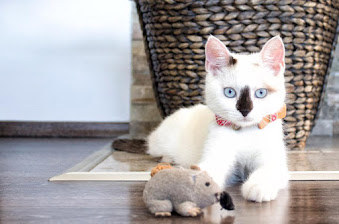You might find it weird when your cat leaves some items for you. One day you’ll see dead mice or small birds on your doors step. You might feel that your cat is sharing her stuff with you.
What’s the reason for doing this? Your pet wishes to thank you for taking care of her. She appreciates you by sharing her treasures with you. Don’t ever think that your cat is acting differently. You should be flattered that your cat thinks highly of you.
Don’t reprimand your cat for leaving these items with you. The cat might think that you are encouraging her actions. And besides, she doesn’t know that what she did was wrong.
What you can do is dispose of the items when your cat is not looking. You can even encourage your pet to stay indoors. By not going out, you prevent her from collecting stuff to give to you.
If you have concerns about your pet’s behavior, contact your animal hospital Pasadena, MD.






